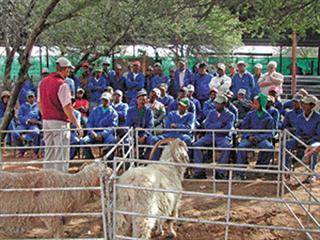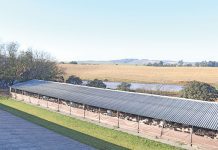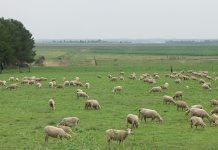
While the minimum wage seems low from a bread-winner’s perspective, labour has become a major expense which can make a critical difference between profit and loss. This can be even more difficult for emerging farmers than for commercial operations that are better equipped to hire the best people, handle the required admin and provide services for their workers.
For example, employing five permanent workers at a minimum wage of R105/ day works out to more than R120 000/year. Not counting related expenses, such as housing, transport or bonuses, that means you’ll have to budget for a labour bill of about R600/working day. Though market prices may plummet and drought or floods can virtually wipe you out, labour costs climb every year. Labour costs have to be monitored and controlled, and efficient use of the work force is critical to the performance of the business.
Balance
You can’t just hire and fire people, so you have to calculate what percentage of your income to spend on labour to give the best return. Other essential expenses such as bank interest, taxes, fuel, vehicles, machinery, fencing material, seed, chemicals and stock medicines as well as your own financial needs have to be taken into consideration.
You’ll have to strike a balance between how much of the physical work you can do yourself and to what degree you can rely on temporary staff to reduce your dependence on a permanent team. But this strategy has a downside. The more physical work you do yourself, the less time you’ll have to oversee and manage your operation. It’s no good you digging a hole while one of your reservoirs is leaking, or an unattended cow is dying in the veld, or when you should be at an auction selling or buying livestock.
Trusted
Ideally you should have a core of trusted staff members that can be boosted with temporary labour when needed, even though it’s difficult to build good relationships with part-time workers and you don’t want to have to teach a new worker every week. It’s better to have fewer workers than to be forced to lay some off during hard times when your cash flow comes under pressure. Just be careful not to have too few workers, as this brings us back to you over-working and neglecting important chores.
Also, you can’t afford to have workers sitting around doing nothing, even when the unexpected happens. If, for example, a sudden downpour makes it impossible to plough or harvest, be sure to have a list of other jobs, such as fencing or road maintenance, for your workers to do.
Tips
Some more tips:
- Whether for a permanent or temporary position, never appoint anyone you don’t know well without checking their credentials and experience. Increasingly, farmers are only hiring people who have bank accounts. This helps to identify the person, and does away with the need to have cash on hand for wages, which makes you a target for robbers on pay day.
- Try to train people who show an aptitude for certain specialist tasks such as driving tractors or sorting produce.
- Be aware of and fully comply with the latest labour laws covering aspects such as overtime, leave, unemployment and housing.
- Draw up proper contracts that cover every possible problem – from the keeping of dogs to access to farm buildings
- Keep records of hours worked, days taken off, and money paid or owing, to avoid pay disputes.













